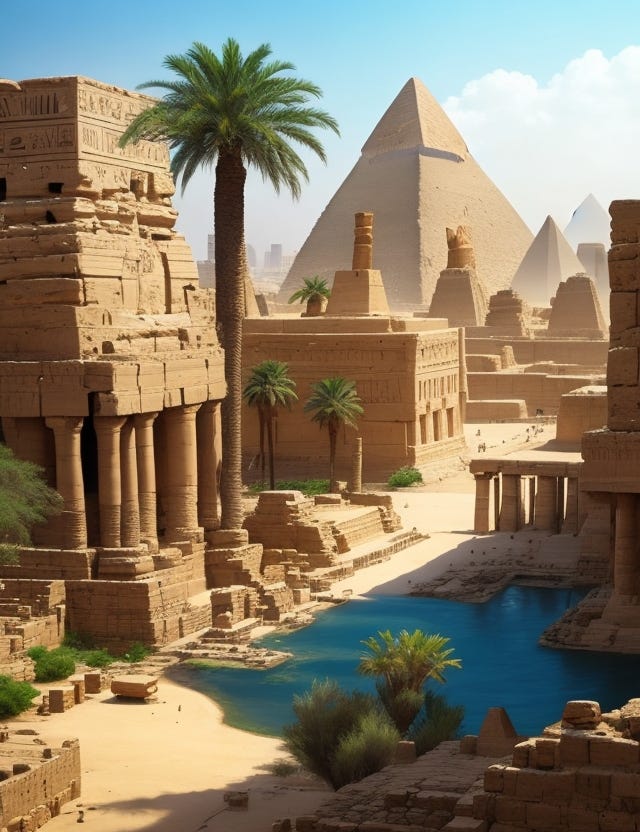Ancient Egypt, one of the world’s greatest civilizations, had a rich and complex political history that greatly influenced the development of modern political systems. Let’s delve into the fascinating political landscape of ancient Egypt.
Early Dynastic Period (c. 3100–2686 BCE)
The political history of ancient Egypt can be traced back to the Early Dynastic Period when the country was unified into a single state under the rule of powerful kings. This period saw the establishment of the first Egyptian dynasties and the emergence of a strong centralized political system that laid the foundation for future governance.
Old Kingdom (c. 2686–2181 Bce)
The Old Kingdom of Egypt marked a significant era in the country’s political history, characterized by the construction of monumental pyramids and the rise of a highly structured bureaucratic system. Pharaohs, or the divine rulers of Egypt, held absolute authority and were assisted by a cadre of officials in governing the kingdom’s vast territories.
Middle Kingdom (c. 2055–1650 Bce)
In the Middle Kingdom, Egypt witnessed a period of political and territorial expansion as well as significant cultural and artistic advancements. The pharaohs of this era focused on consolidating their power, implementing administrative reforms, and strengthening the centralized government to ensure stability and prosperity.
New Kingdom (c. 1550–1070 Bce)
The New Kingdom brought about a resurgence of Egyptian power and influence, spearheaded by powerful pharaohs such as Hatshepsut, Thutmose III, and Ramesses II. This period was characterized by extensive military conquests, grand building projects, and the establishment of diplomatic relations with other ancient civilizations.

Credit: www.amazon.com

Credit: fastercapital.com
Government and Administration
Ancient Egypt operated under a theocratic monarchy, where the pharaoh, believed to be the earthly incarnation of the gods, held supreme authority over all aspects of governance. The pharaoh was supported by a hierarchy of officials, including viziers, scribes, and provincial governors, who assisted in the administration of the country.
The country was divided into administrative regions called nomes, each governed by a local nomarch appointed by the pharaoh. This decentralized administrative structure allowed for effective governance and resource management across different regions of Egypt.
Legal System
The legal system in ancient Egypt was based on a complex set of laws and judicial procedures that aimed to maintain order and justice within the society. The vizier, as the chief justice, oversaw the legal proceedings and ensured the fair application of laws.
Legal disputes and criminal cases were adjudicated by local courts, presided over by judges who based their decisions on established legal codes and precedents. Punishments for crimes ranged from fines and corporal penalties to exile and, in severe cases, execution.
Legacy and Influence
The political legacy of ancient Egypt continues to have a lasting impact on the world, influencing the development of governance, law, and political institutions. The concept of divine kingship, bureaucratic governance, and territorial administration pioneered by the ancient Egyptians has left an indelible mark on the history of political systems.
From the majestic pharaonic rule to the intricate administrative apparatus, ancient Egypt’s political history remains an invaluable source of knowledge and inspiration for modern political studies and governance practices.
In conclusion, the political history of ancient Egypt is a captivating journey through the evolution of governance, law, and administration in one of the world’s most enduring civilizations. The enduring legacy of pharaonic rule and the remarkable achievements of ancient Egyptian political systems continue to intrigue and inspire scholars and enthusiasts alike, shedding light on the timeless allure of Egypt’s political past.
Frequently Asked Questions On Ancient Political History Egyptian: Uncovering The Tapestry Of Power
What Were The Major Political Events In Ancient Egypt?
Ancient Egypt witnessed several significant political events that shaped its history, including the unification of Upper and Lower Egypt by Narmer and the reign of powerful pharaohs like Hatshepsut and Ramses II.
Who Ruled Ancient Egypt?
Ancient Egypt was ruled by pharaohs who were considered divine figures and held ultimate authority and power. The pharaohs played a pivotal role in political, religious, and administrative matters in ancient Egypt.
What Was The Structure Of Ancient Egyptian Government?
The government of ancient Egypt was centralized and hierarchical. At the top was the pharaoh, followed by high-ranking officials, priests, and scribes who assisted in governing the country and ensuring its prosperity.
Did Ancient Egypt Have A Democratic System?
No, ancient Egypt did not have a democratic system like the one we have today. The pharaoh held absolute power and made all major decisions, while the people had limited participation in the political process.
Guest Author Sakhawat-Shuvo wrote and edited this Article based on his best knowledge and understanding. These opinions and remarks are not endorsed or guaranteed by epichistoria.com or EpicHistoria. The Epic Historia does not guarantee this article’s content. Readers should verify and use their judgment before trusting the content. Also, the Images used in this Article are the copyright of their Respective Owners. Please use our Comment Box or Contact Us form to report this content. This information is not accountable for losses, injuries, or damages.


